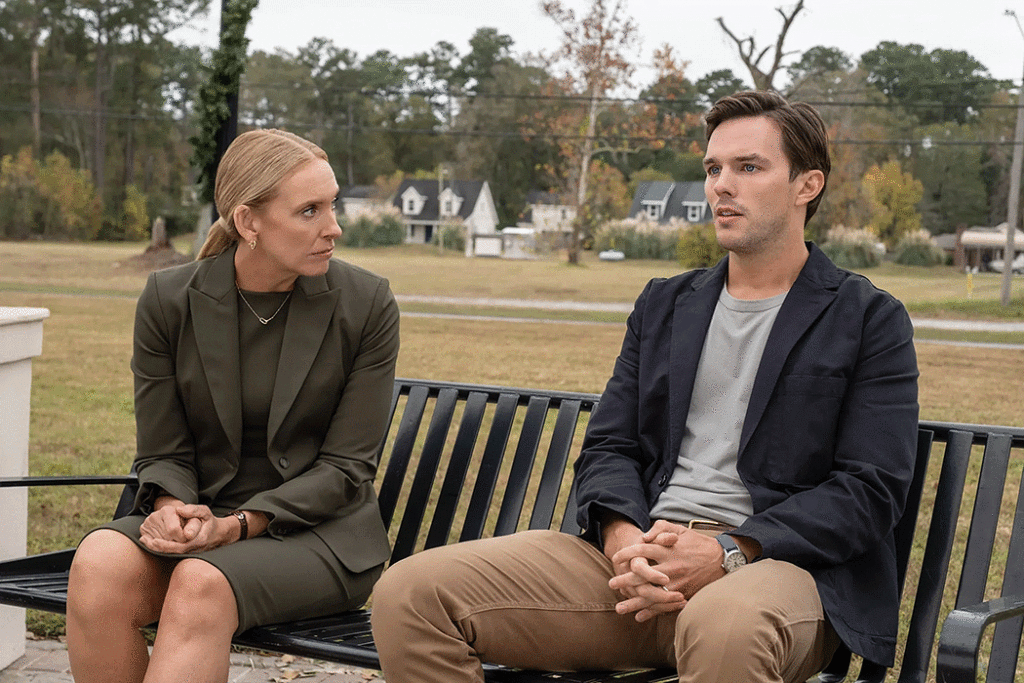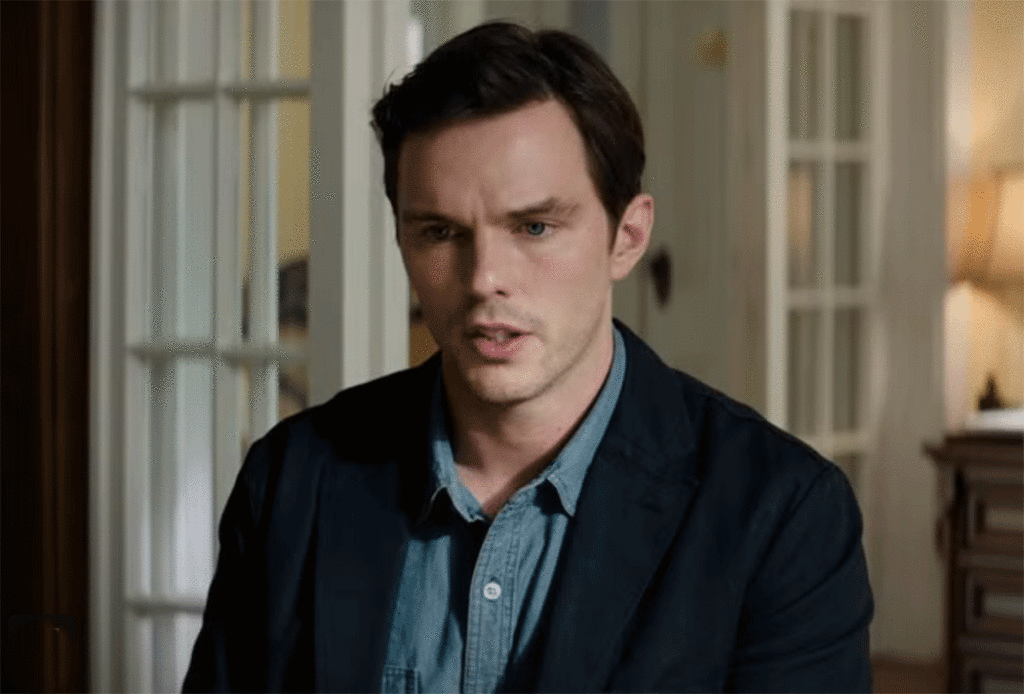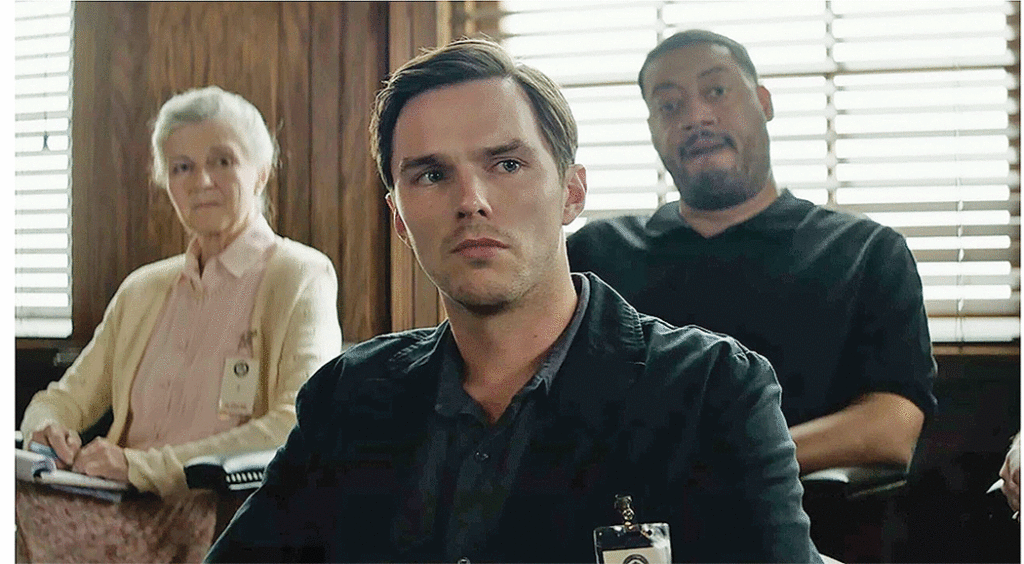
“I believe that this process, as flawed as it is, is still our best chance at finding justice.” —The judge addressing the jury in Juror #2
Directed by Clint Eastwood and written by Jonathan Abrams, Juror #2 walks us through a murder trial in Savannah, Georgia, where a hot-tempered young man named James Sythe (Gabriel Basso) is accused of murdering his girlfriend, Kendall, played by Francesca Eastwood, Clint Eastwood’s daughter.

Juror #2 favors the vantage point of Justin Kemp, played by British-born Nicholas Hoult. You may recall young Hoult’s launch into film stardom opposite Hugh Grant in About a Boy, in which Hoult’s unstable mother was played by Australian-born Toni Collette—who now plays the tough prosecutor in Juror #2. In addition to Hoult and Collette, the high-octane cast includes Kiefer Sutherland, J.K. Simmons, comedian Cedric Yarbrough, Chris Messina, and Amy Aquino (of the Bosch detective series) as the judge.
Justin Kemp (Hoult) is the second of twelve candidates appointed for jury duty. He’s married, in his 30s, and an AA member with a DUI history. His wife (Zoey Deutch) is in her final month of pregnancy after a miscarriage, a trauma that still plagues the couple. Kemp’s perspective is a mystery that unravels throughout the film, adding a twist that turns the court genre on its side. And how this story will come in for a landing is anyone’s guess.
Then there’s the well-meaning public defense lawyer (Chris Messina), who genuinely believes that his client, facing a life sentence, is not guilty. Public defenders are considered the best defense that poverty can buy. Just another reminder that the system is not designed to represent all citizens equally. If this film has a sequel, I hope it includes a solution.

Juror #2 focuses less on the courtroom and more on the characters, especially in the jury room. And everyone’s got a story, but here they’re all equal. A juror’s compensation is token wages, whatever the length of the trial. But jury duty is a Herculean responsibility that the public equates with drawing the short straw.
The underlying deficiency with our justice system—which does plenty of things right—is that it’s not right enough. We have high expectations of randomly chosen jurors to be unbiased and unhurried while they assimilate courtroom testimonies and evidence into probable or unlikely guilt. A morphed continuation of English law from the 1200s, the American legal system found its way into movies like Anatomy of a Murder and Witness for the Prosecution, as well as TV entertainment with series like The Defenders, Perry Mason, and, later on, Law & Order. And let’s not forget how the eight-month trial of O.J. Simpson turned courtroom protocol into live theater.
Juror #2 peers deep into the heart of Justin Kemp, whose unique perspective gives him a mixture of clarity and suspension that he struggles to process. It also observes people’s morals, which seem flexible according to the issue. In or out of the courtroom, people often trust their assumptions even when they can’t verify the truth. And in general, the film raises reasonable doubt about the performance of our legal system, which prompts the question: if it’s broken, why don’t we fix it?
